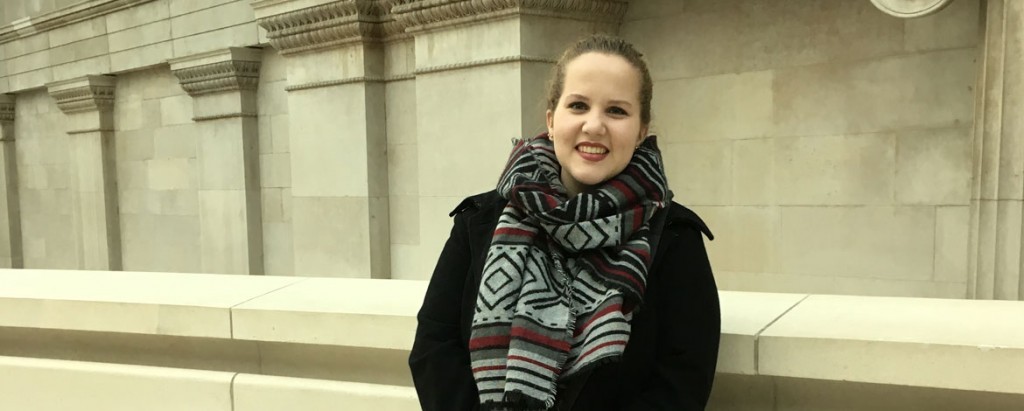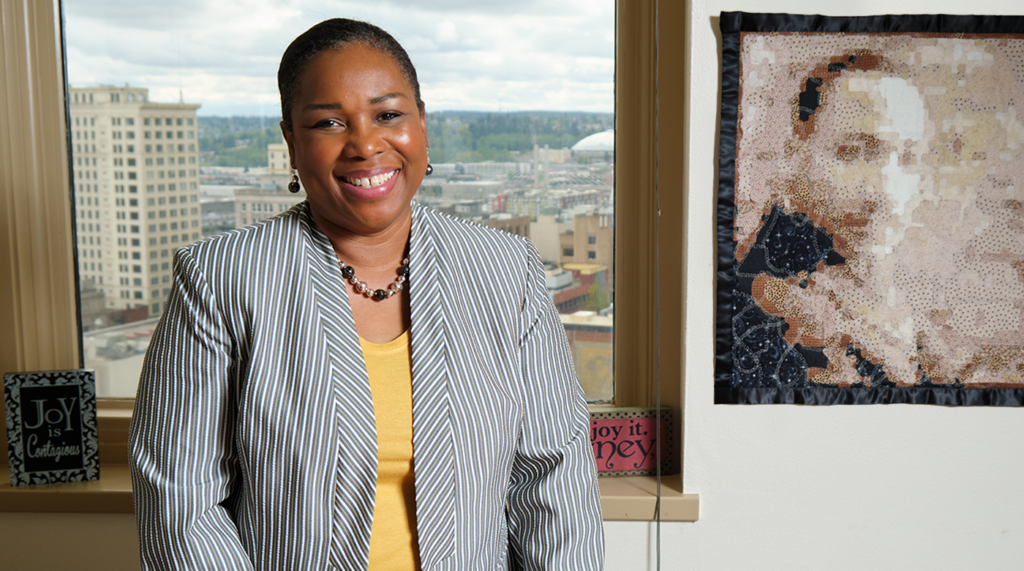Page 7 • (97 results in 0.033 seconds)
-

TACOMA, WASH. (May 18, 2017)- You could argue that Michele Anderson’s head was in the stars when she chose to pursue an engineering degree. “I’ve known that I want to pursue engineering for a long time now, due in part to my love of ‘Star…
involved with engineering aspects of human spaceflight and human-centered design,” she said. “I believe the capabilities and decision-making processes of people are assets in unpredictable situations like spaceflight, and even the most perfectly functioning automated or unmanned spacecraft can’t replicate what people can do.” Read Previous PLU Announces Election of New Board of Regents Chair Read Next PLUtonic debuts first solo music video COMMENTS*Note: All comments are moderated If the comments don't
-

Theatre major Zivia Rich ’24 loves a good story. She is especially fond of them in the form of a radio show or podcast. Growing up, the Seattle-area native spent much of her time listening to KUOW, their local National Public Radio station. “We have…
processes translate to my process,” Rich said. “I’ve gotten a lot of help from people who worked on “Twisted Tales of Poe,” which was produced two years ago.” That support includes Fulton Bryant-Anderson ’23, the LASR General Manager, and Mykahla George ’25, the production’s stage manager. Bryant-Anderson has taken the time to offer his expertise on the technical side of audio storytelling.“When Z reached out, I instantly got flashbacks to May 2021 when LASR collaborated with the theatre department to
-
Angela Tennant ’12 Degree: Bachelors of Fine Art – Theatre, Acting Directing with an English Literature minor Organizations: Alpha Psi Omega (Member and Historian), Vpstart Crow (President), CLAY CROWS Improv (Member), SOAC Advisory Board Where are you now? “I currently reside in New York City. Upon graduation…
start doing your art. Move across the country, or to a different country! Find a program that excites you, or stay and invest yourself into a community. Regardless, do your art. There’s a beautiful book by Stephen Pressfield called The War of Art. In it, he argues that each artist is bestowed with a divine inspiration, a need and drive to create in their specific medium. And it is our duty, as artists, to overcome the Resistance we face (internal and external) to our creative processes. So work to
-

As far back as middle school, others noticed Lisa Woods’ quiet strength and power of observation. “My demeanor is to listen, hear people and see people,” she says. “I’ve developed that over time, but I’ve always been the listener in the room and not necessarily…
equity action of Resolution 40622, passed by the Tacoma City Council in 2018. Resolution 40622 notes that Tacoma’s existing systems haven’t adequately served the needs of Black community members and other community members of color and directs the city manager to help remedy the issues. In partnership with city departments, Woods and her staff help assess how community services are delivered and may even create new racial inequities. “We are understanding more just how connected our processes are in
-

Dance 2017: Innovation features PLU dancers working with guest and student choreographers exploring inventive themes through dance. The performances are on Friday, April 7 and Saturday, April 8 at 7:30 p.m. in Eastvold Auditorium of Karen Hille Phillips Center for the Performing Arts. This year’s…
theme of innovation is significant because it involves not being complacent and accepting the status quo in the world of dance. Innovation is the belief that it has not ‘all been done before’- there is new ground to cover in the art of communicating through dance, pushing through the comfort zone to try something new,” Winchester says. Winchester’s piece Home Movies engages modes of innovative storytelling, where imagination, improvisation and memory play an active role in the creative processes of
-

Clarissa Gines was one of the first students to graduate with PLU’s art history undergraduate degree in 2012. It wasn’t easy—she had a child during her senior year, and juggled parenthood with schoolwork and an internship at a Seattle-based art gallery. She then worked as…
to Tacoma arts, culture, heritage, and science experiences by reducing barriers to access and expanding offerings, particularly for underserved youth. As the program coordinator, Gines helps update funding guidelines, builds out application processes, communicates with organizations, and helps distribute funding. Gines treasures being part of the arts and culture sector while advancing equity and access with a practical, problem-solving approach. “As we’re updating our application and updating
-

Dance 2017: Innovation features PLU dancers working with guest and student choreographers exploring inventive themes through dance. The performances are on Friday, April 7 and Saturday, April 8 at 7:30 p.m. in Eastvold Auditorium of Karen Hille Phillips Center for the Performing Arts. This year’s…
theme of innovation is significant because it involves not being complacent and accepting the status quo in the world of dance. Innovation is the belief that it has not ‘all been done before’- there is new ground to cover in the art of communicating through dance, pushing through the comfort zone to try something new,” Winchester says. Winchester’s piece Home Movies engages modes of innovative storytelling, where imagination, improvisation and memory play an active role in the creative processes of
-

As far back as middle school, others noticed Lisa Woods’ quiet strength and power of observation. “My demeanor is to listen, hear people and see people,“ she says. “I’ve developed that over time, but I’ve always been the listener in the room and not necessarily…
inequities. “We are understanding more just how connected our processes are in creating disparities,” she says. “We’ve been educating our workforce on what equity is, how to look at things through an equity lens, and dissecting how we do what we do. We’re typically one piece of the system, but often, the piece that we can change can still make a difference.” She’s enthusiastic about encouraging community member participation in Tacoma commissions, explaining commission work and reasons to volunteer. “I
-

The City of Tacoma provides high-quality, innovative and cost-effective municipal services that enhance the lives of its 215,000 residents and the quality of its neighborhoods and business districts. PLU alumni Tom Chontofalsky ’03, Clarissa Gines ’12 and Lisa Woods ’92 are three of the many…
the first voter-approved Cultural Access Program in Washington State. The initiative intends to increase access to Tacoma arts, culture, heritage, and science experiences by reducing barriers to access and expanding offerings, particularly for underserved youth. As the program coordinator, Gines helps update funding guidelines, builds out application processes, communicates with organizations, and helps distribute funding. Read our full profile of Clarissa Gines. The Powerful ObserverAs far back
-
World expert addresses masculinity, violence Silence is not golden. That was the message from Sut Jhally , founder and executive director of the Media Education Foundation . Jhally’s address last Thursday marked the beginning of PLU’s first Men Against Violence Program conference that examined men’s…
silence of the rest of us, the silence of the rest of us who consider ourselves the good guys.” A communication professor at the University of Massachusetts, Jhally is one of the world’s leading scholars on the role advertising and popular culture play in the processes of social control and identity construction. At his talk, he said gender identity does not occur naturally; instead it’s learned from images in the media, from peers and family members, and people simply act out the culturally-accepted
Do you have any feedback for us? If so, feel free to use our Feedback Form.


